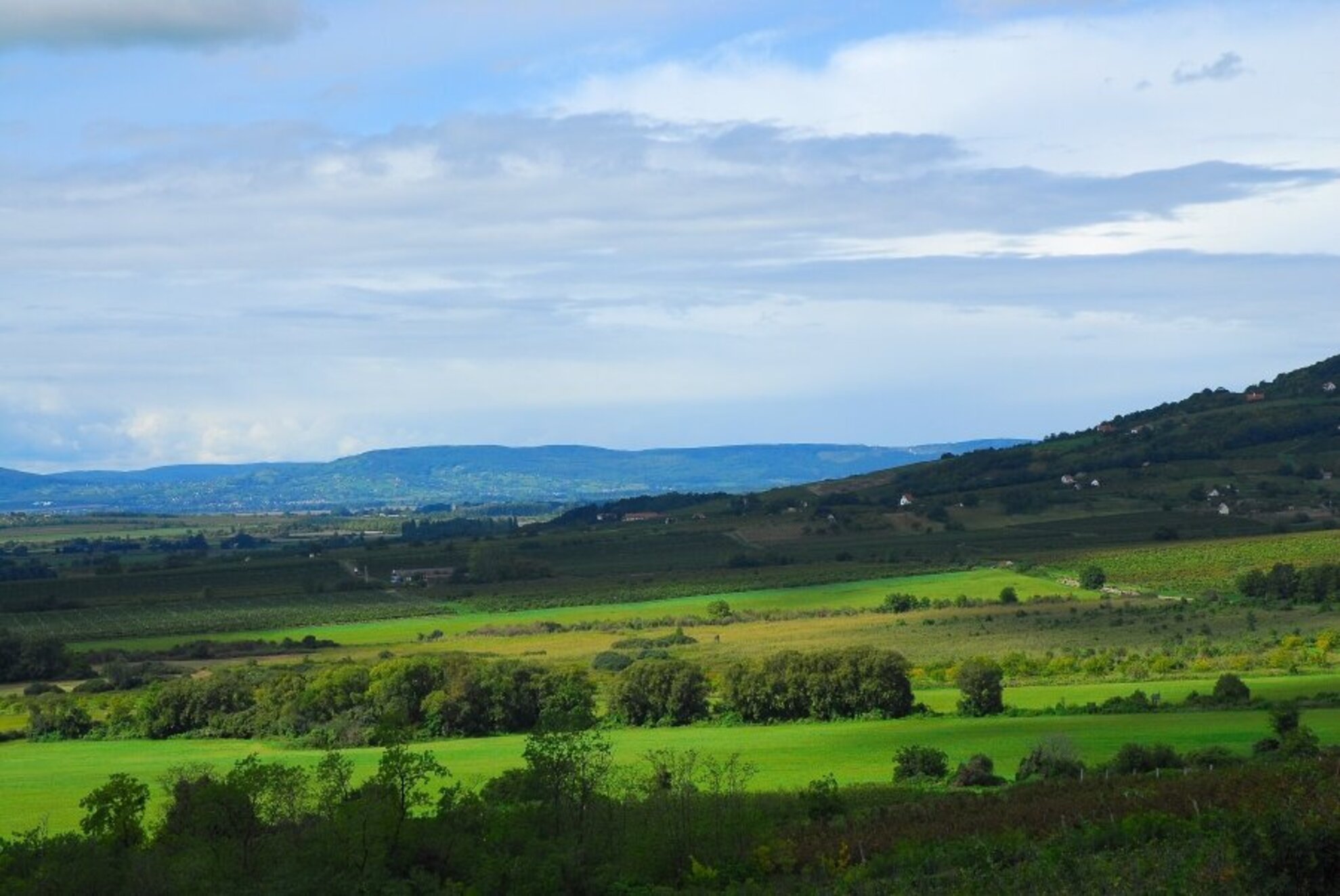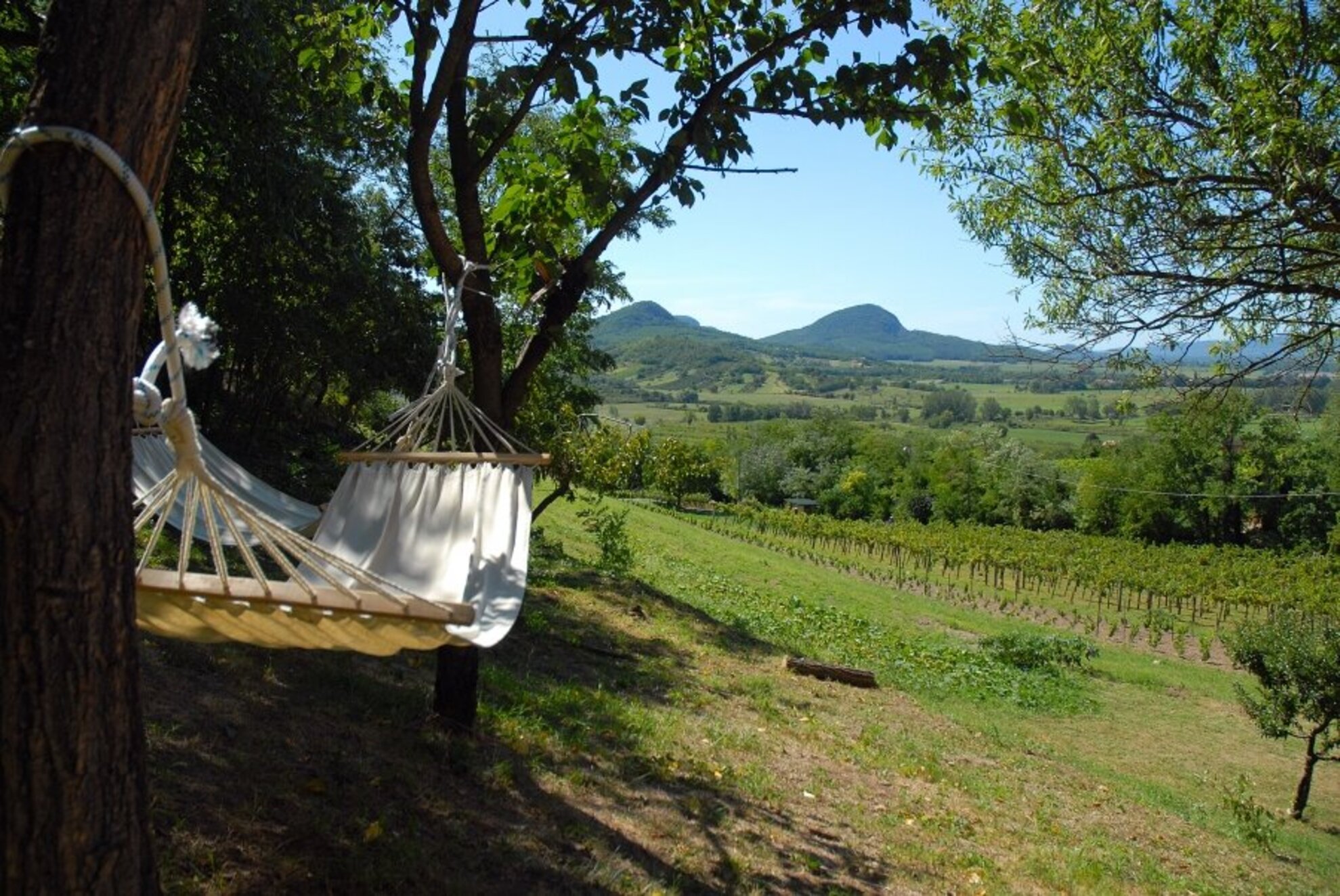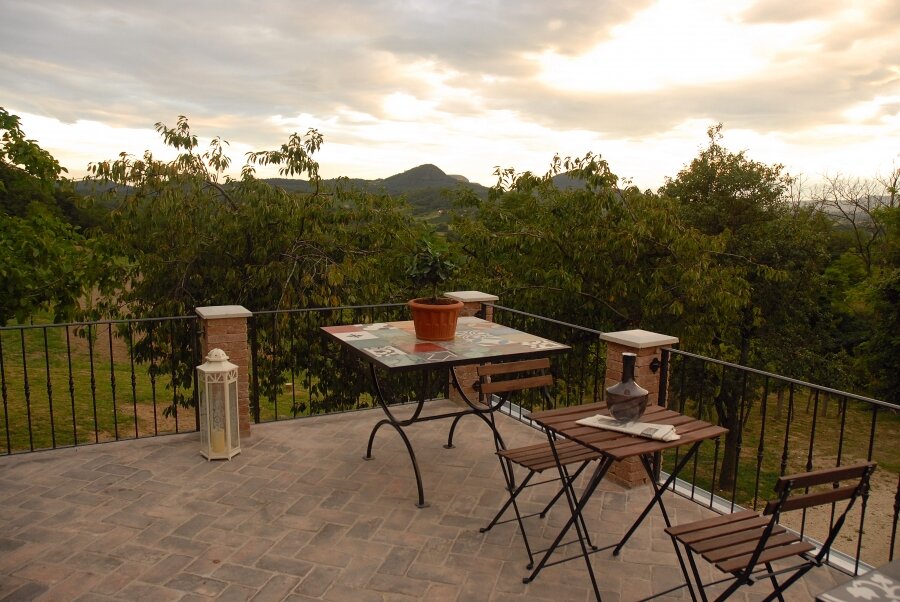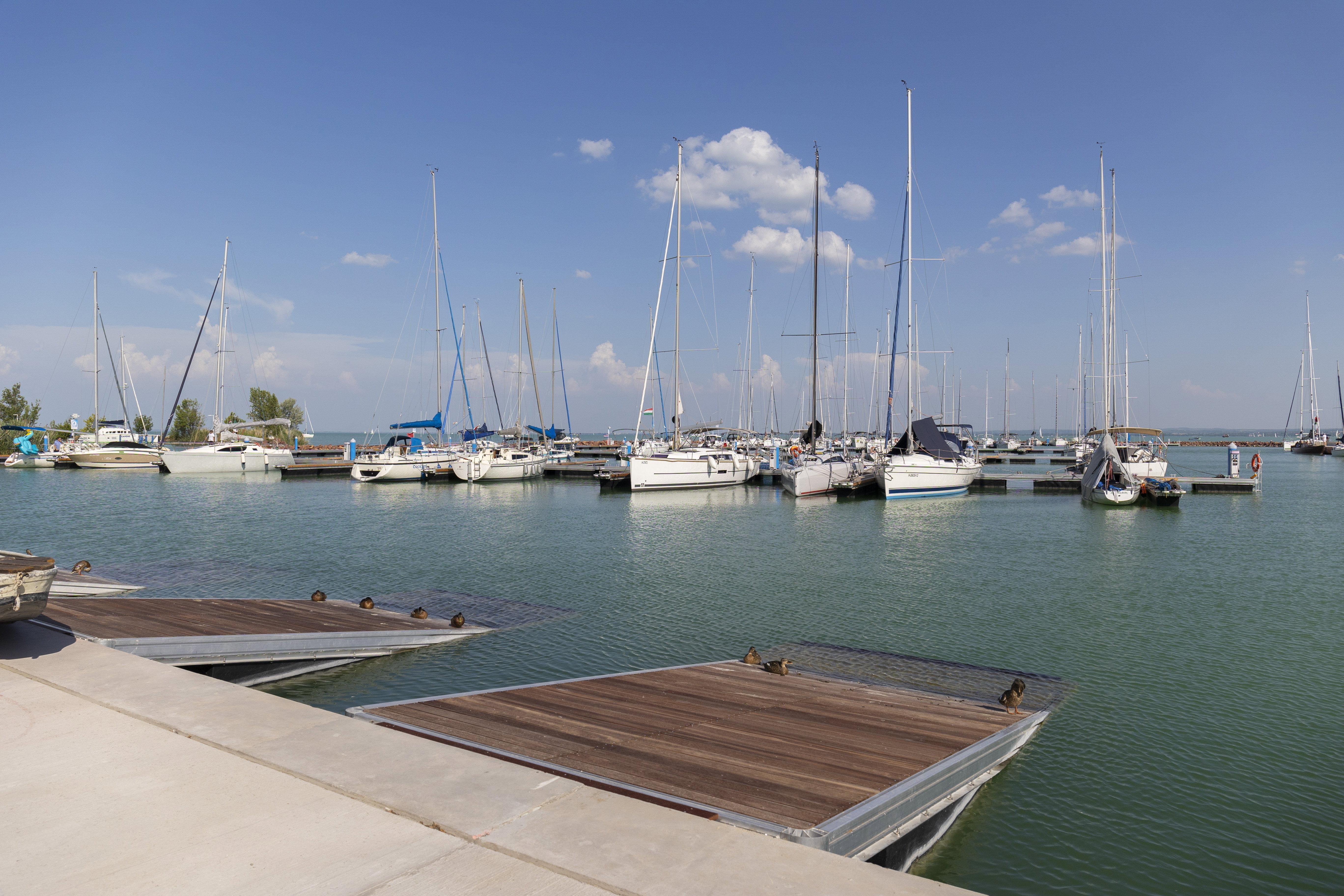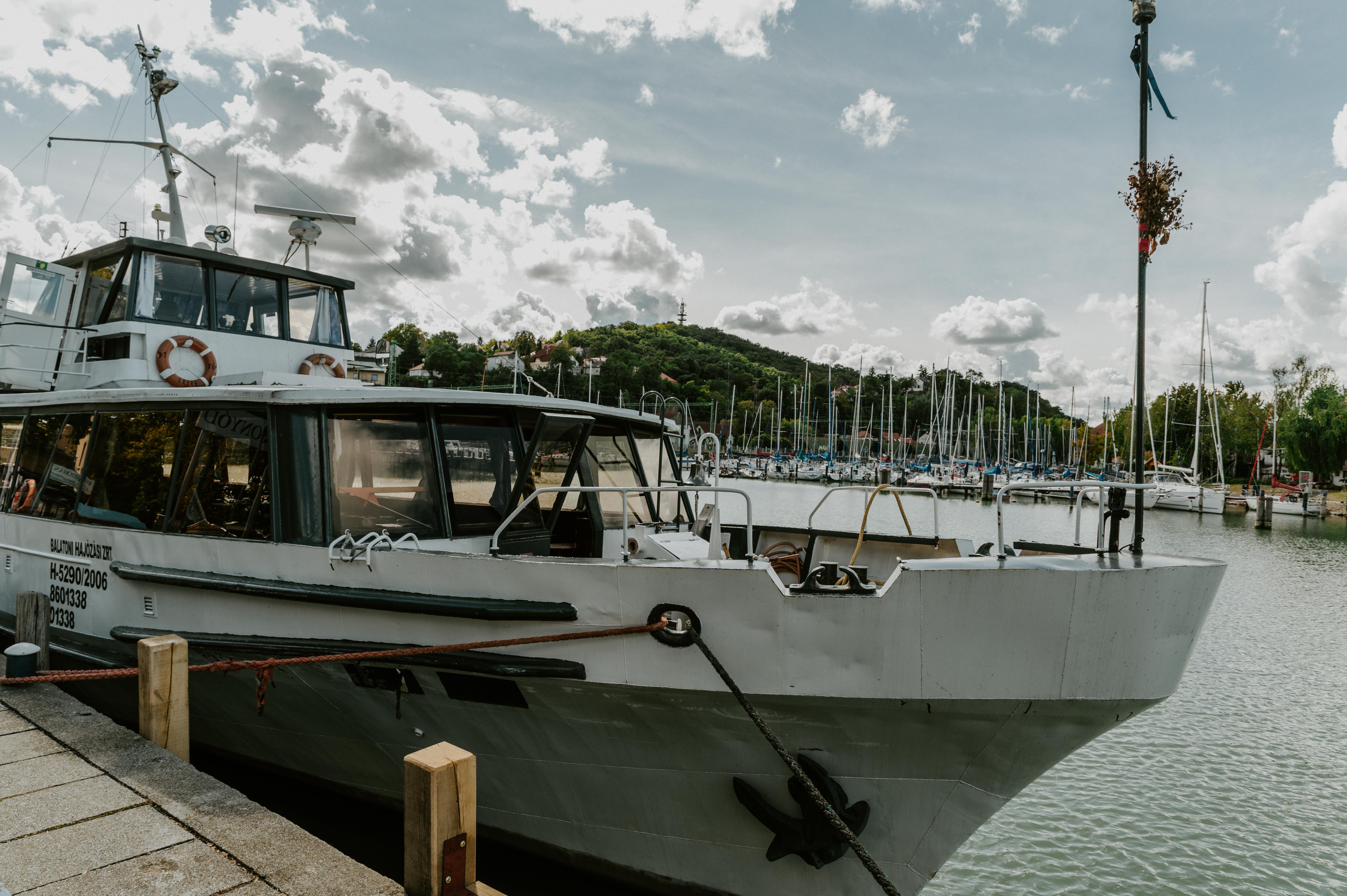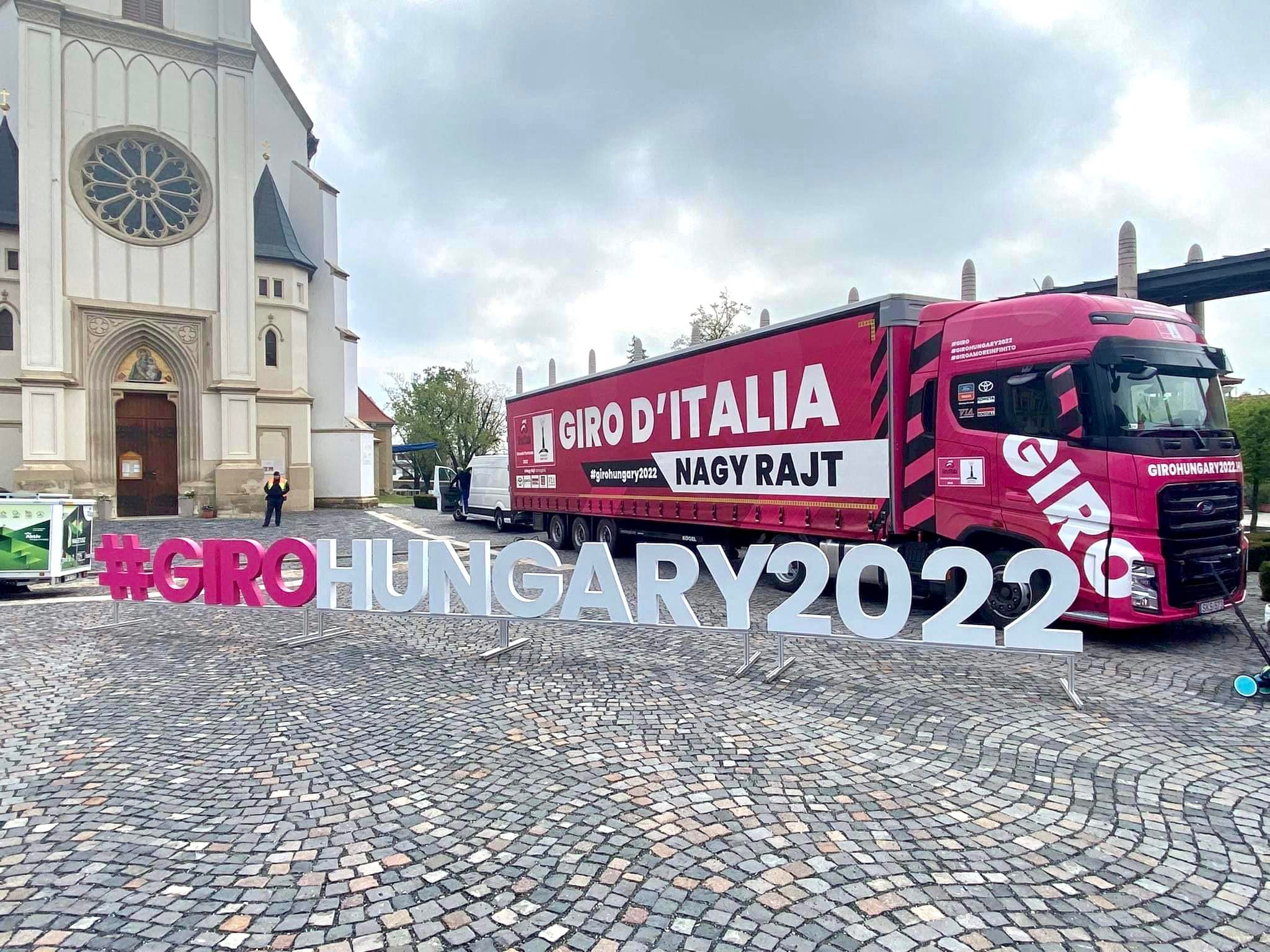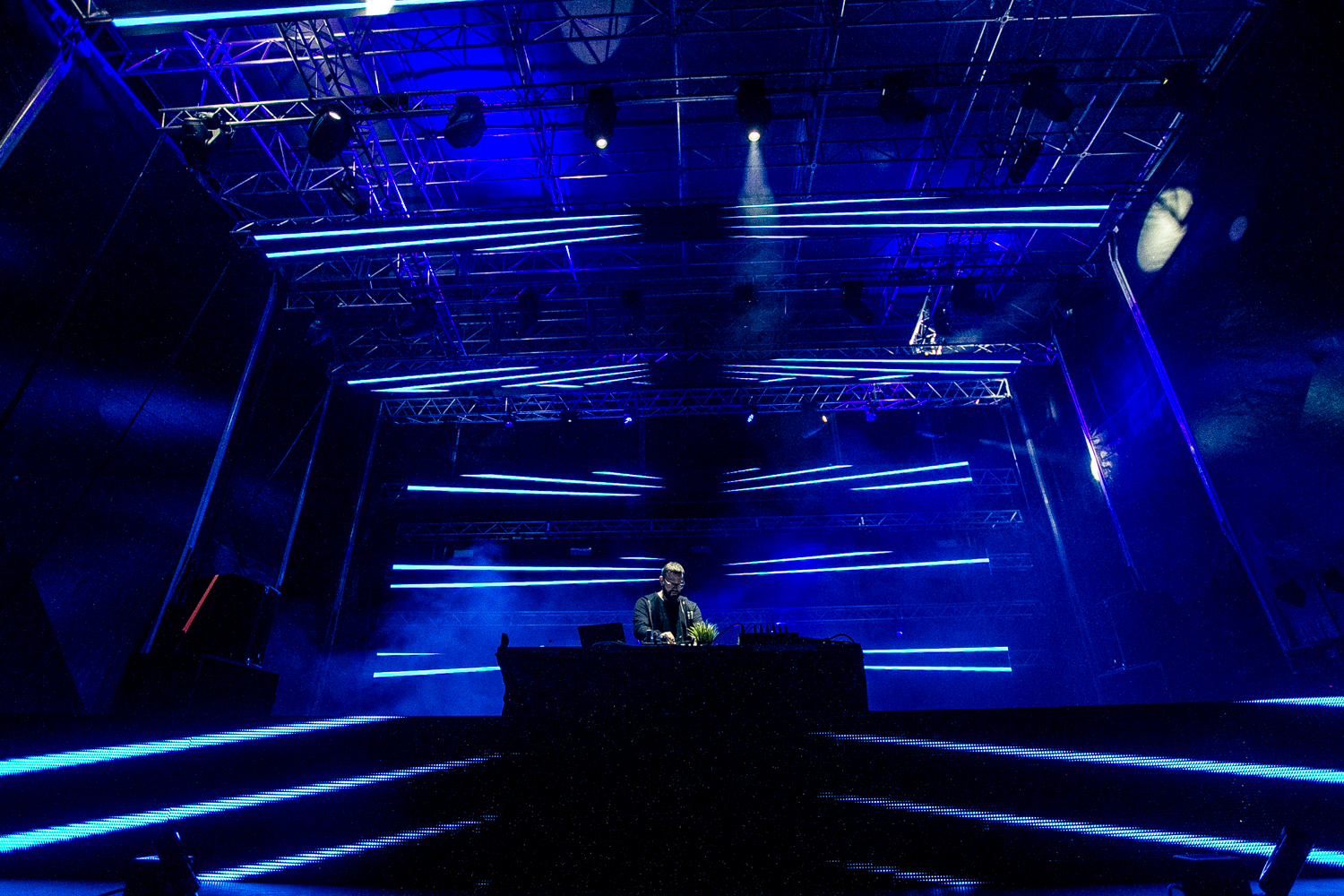One of the dirt roads of Káptalantóti runs up to Sárga Ház (meaning: Yellow House), which really used to be yellow once and which resembles a French manor house now. Gábor and his Indian wife, Ro used to wander a lot around the place and were always watching the yellow house with longing. Then the "for sale" sign was put up and they went for it.
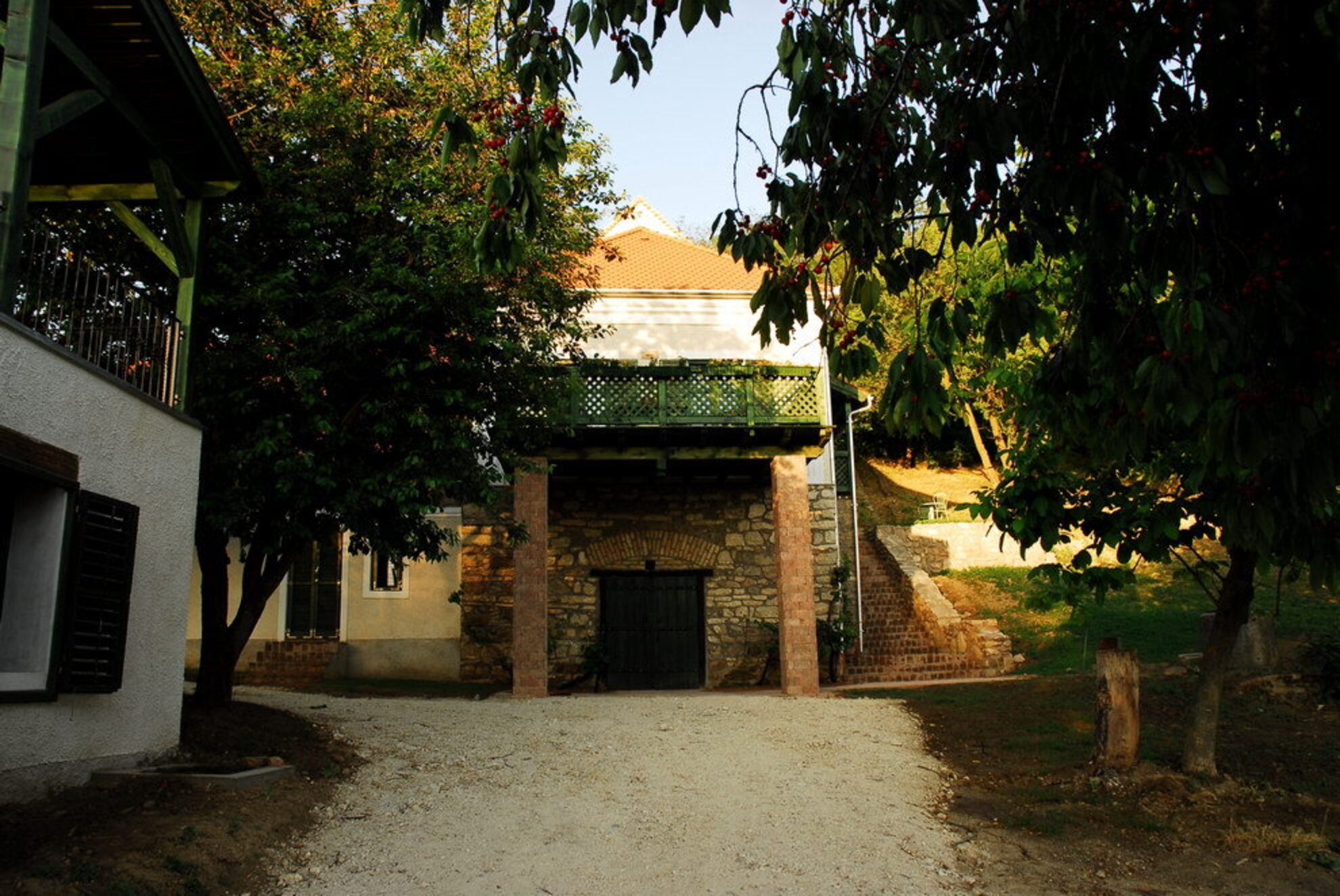
The road to Káli-medence was adventurous. Gábor and Ro met in Cuba, both being backpacking around the world. Travelling is still a passion they share, but these winters they are exploring in three, together with their daughter.
From spring to autumn, however, the family lives here, at this fairytale of a place. The guests are granted a little glimpse into the life of the family as well, as Ro cooks in the outdoor kitchen and prepares her goods and Indian jewellry for the Káptalantóti market in the garden.
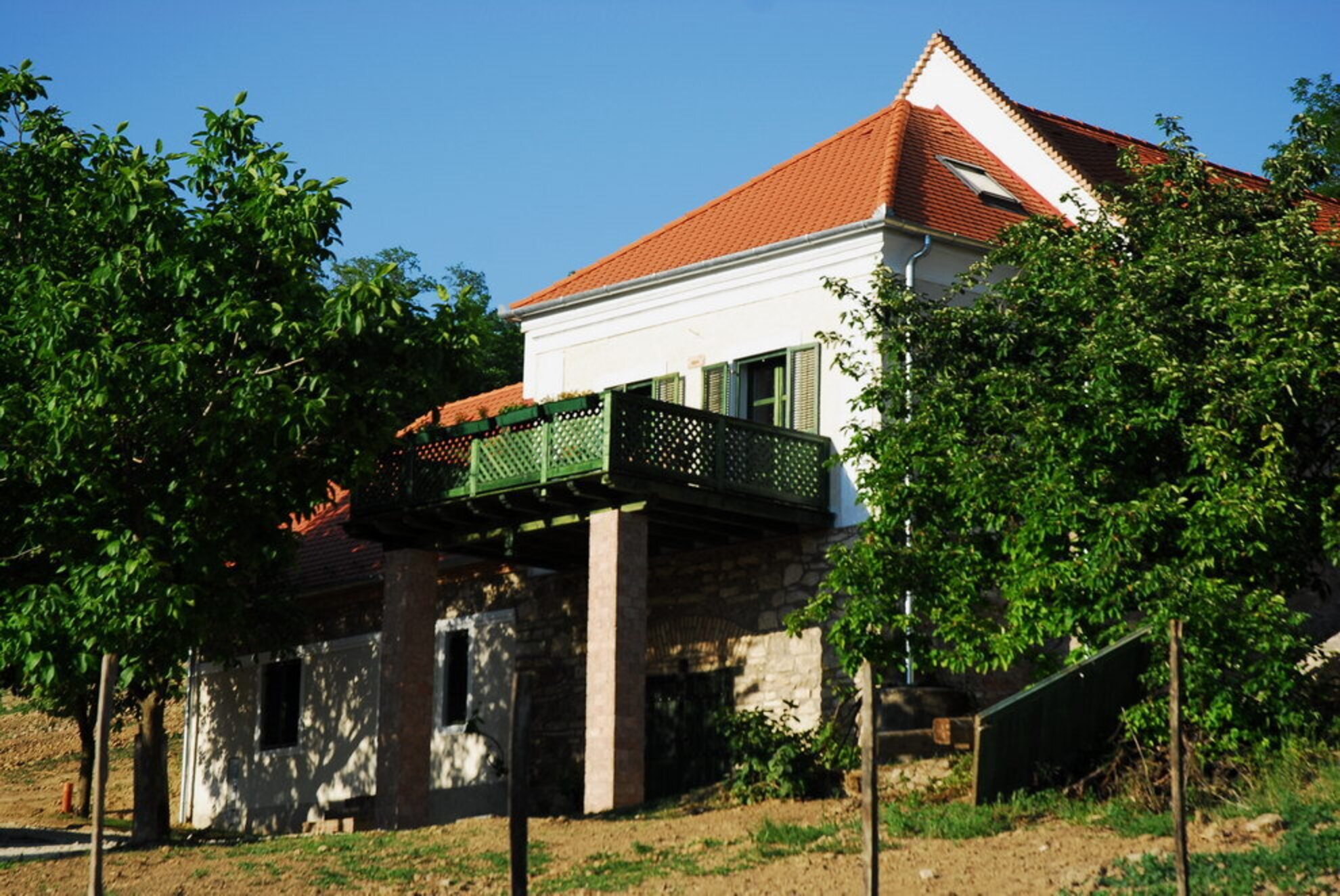
The grapevine-trimmed garden is a true tranquilizer and even a Buddhist monk would feel a pang of envy seeing the glass-walled reading nook overlooking Lake Balaton or the breakfast terrace decorated with delightful Indian fabrics.
Upon our visit, there were corn bread fresh out of the oven and homemade jams on the breakfast table. It seems that locals also like the Indian resident of their village, because while we were eating, there was always somebody stopping at the gate to chat with Ro.
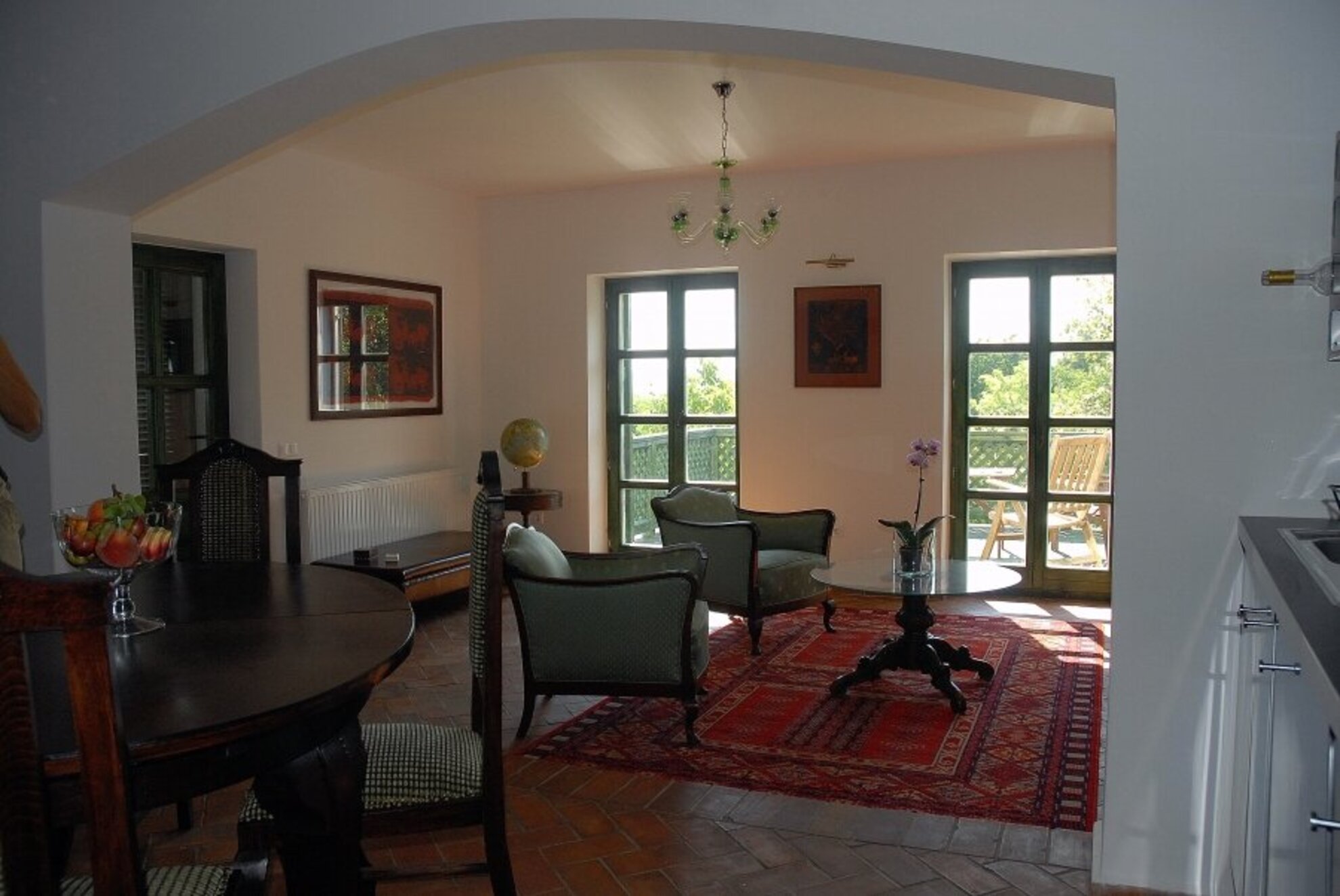
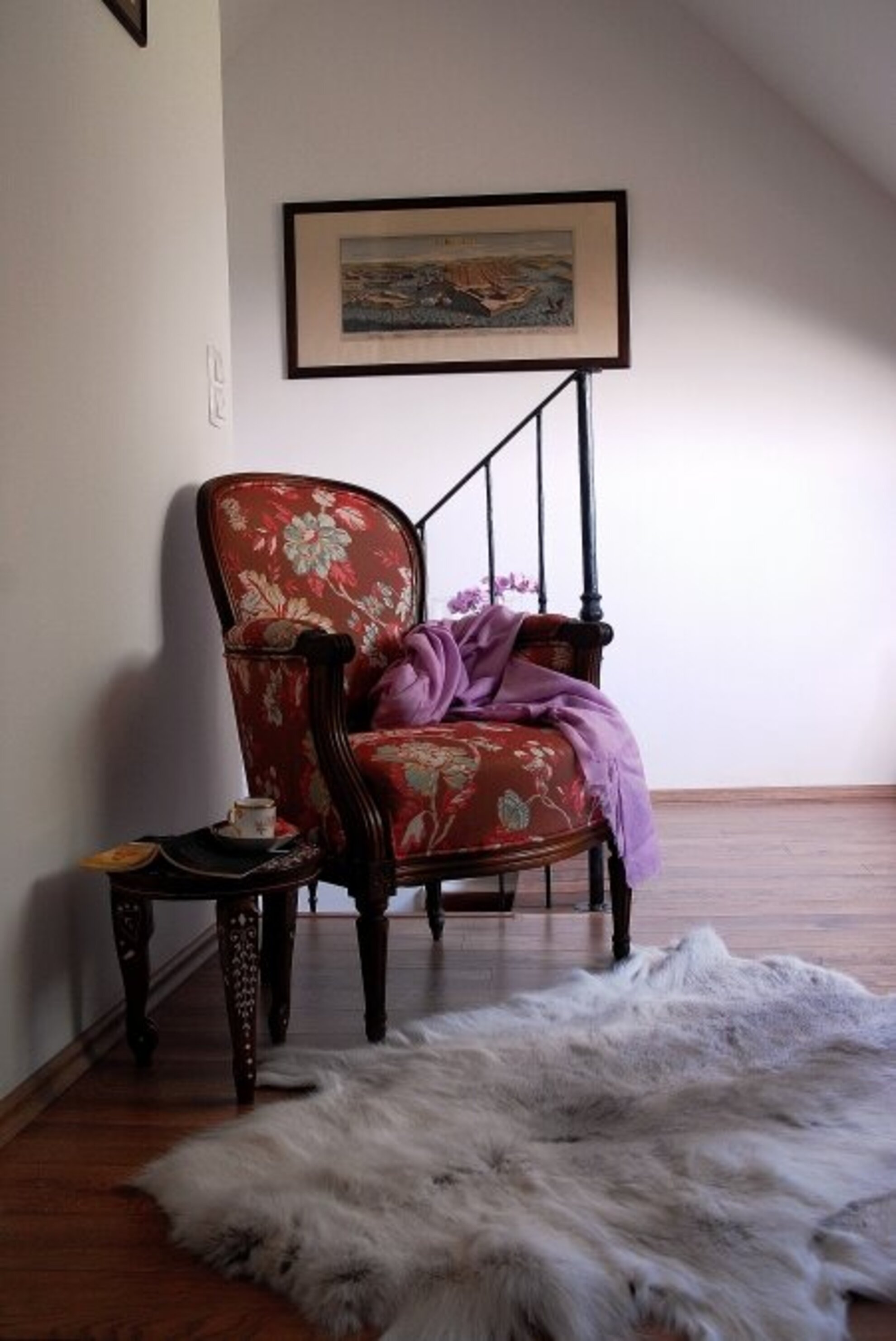
Sárga Ház has been up and running for three years now. If it wasn't for this place, they would have a similar house somewhere by the sea - but Káli-medence was love at first sight.
From early spring to late autumn, there are three two-storey, fully equipped apartments for four persons to rent. The approximately 70 square metre apartments each have their own living, dining and sleeping area, bathroom and a kitchenette. These flats exude a unique air, mixing modern elements with oriental accessories and furniture.
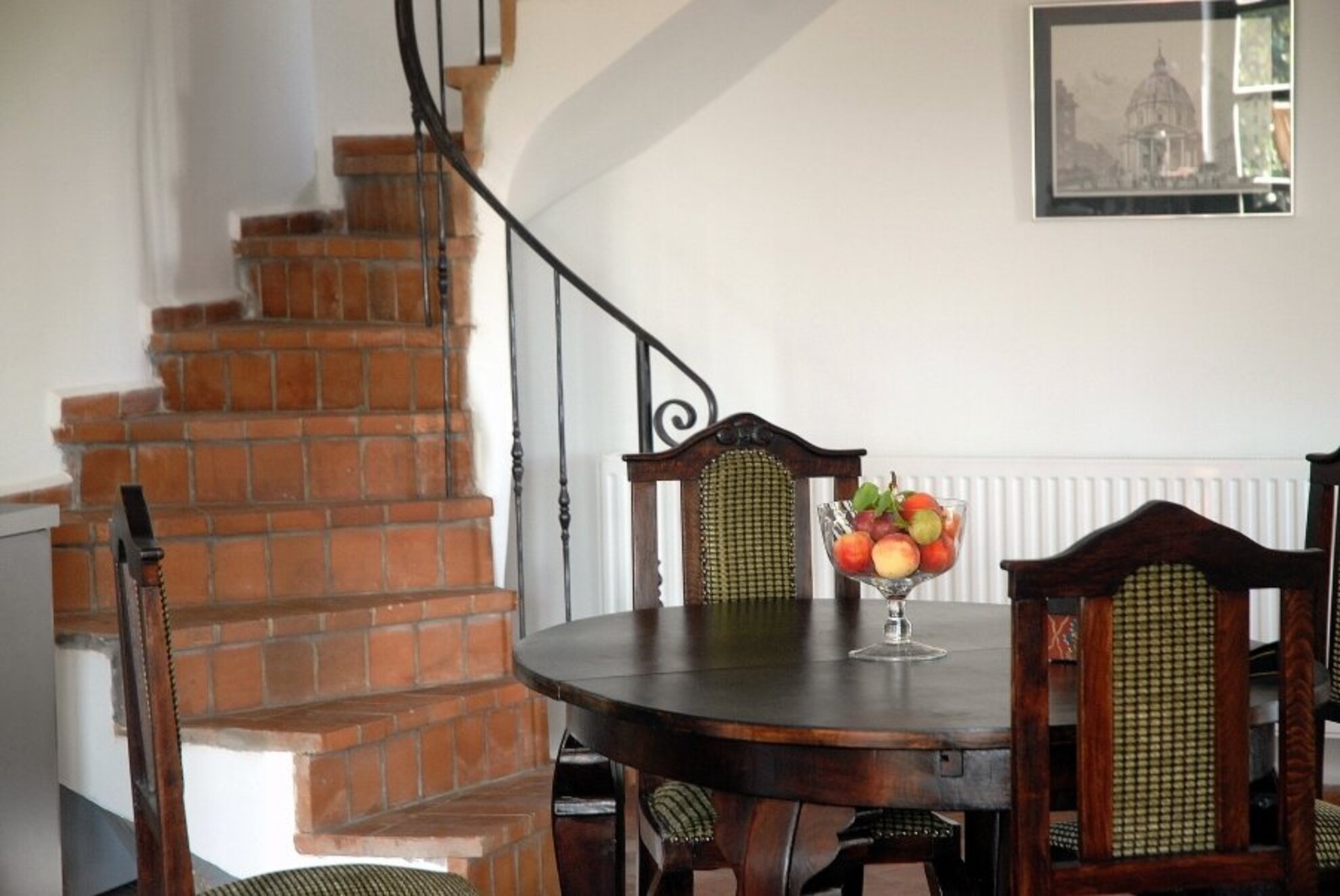

In addition to the restored furniture (picked out mostly at flea markets abroad), Indian candlesticks, cushions and incense sticks help you reach the alpha state here. Looking out o fthe window in the morning, still half asleep, we could not tell where we were exactly: in India or the Káli-medence.
